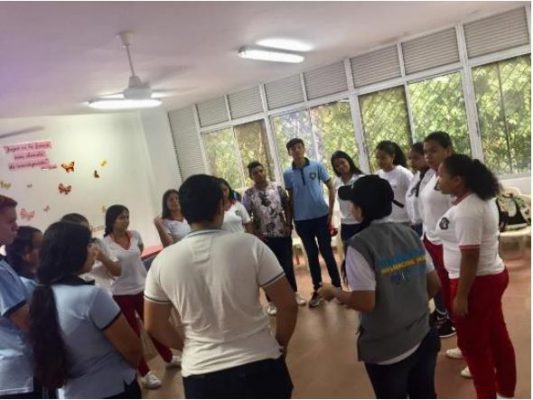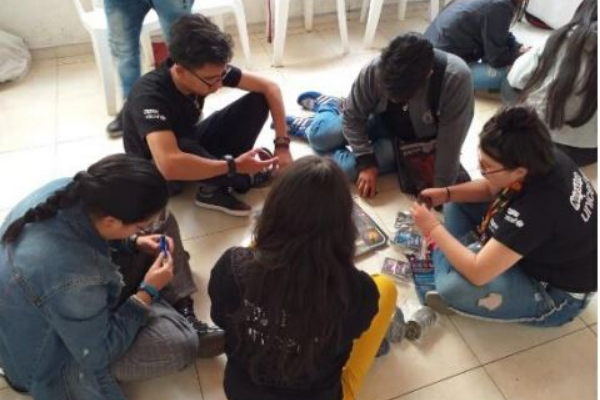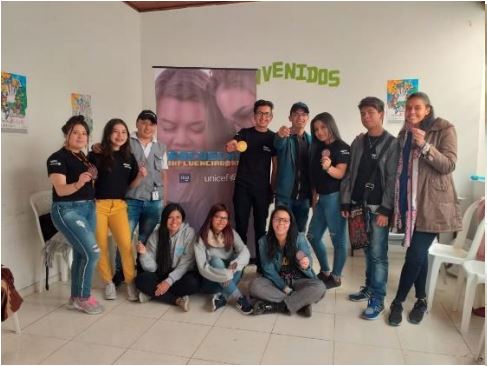Project Execution: 2019 – Currently
Location: Sincelejo, Soacha, Medellín, Pasto, Pereira, Cali, Quibdó and Barranquilla
Beneficiaries:
Young people between 10 and 19 years.
Since 2019, MAKAIA develop the project “Escuela de Influenciadores” of UNICEF and MILLICOM that operates in Colombia through TIGO. This project is focus on promote life skills, such as communication and expression, empathy and respect, creativity and innovation etc., that allow the responsible and creative use of the Internet in colombian adolescents between 10 to 19 years.
The objective of integrating these skills, as the main axis of the formation process, is that the adolescents could make decisions about the use of the Internet, gain autonomy and maximize opportunities and mitigate the risks associated with Internet.

This project merges the UNICEF methodology in which knowledge is built with and for young people, promoting social participation and empowerment with the objective of strengthening life skills and the TIGO methodology that was constructed by EAFIT University trough an academic research about risks and opportunities associated with the use of the Internet in Colombia.
Because of methodologies position the experience as a vehicle for learning, in the “Escuela de Influenciadores” the formation process of adolescents was carried out through experiential activities that allow to assumed an active role in the collective construction of knowledge. The implementation of these activities was carried out through a waterfall process that allowed the formation of a younger group of trainers that trained adolescents.

In 2019:
